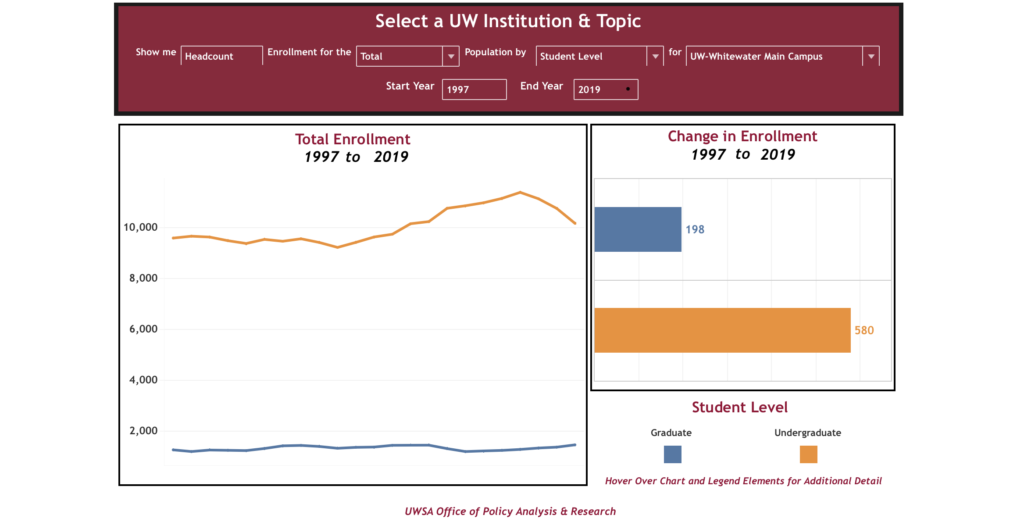 Catherine Rampell observes Tough economies usually push people into more education. It’s not happening this time. She writes that
Catherine Rampell observes Tough economies usually push people into more education. It’s not happening this time. She writes that
Usually, postsecondary enrollment increases during tough economies, as workers seek shelter from the lousy job market and invest in upgrading their skills. This can be a (small) silver lining of downturns: If displaced workers choose wisely when it comes to educational and retraining programs, they can emerge from the recession better equipped to boost their earnings. In the long run, a higher-skilled populace increases economic growth, too.
….
lots of fresh data show that college completions and new enrollment have plummeted since the coronavirus pandemic began. That’s particularly true for programs below the level of bachelor’s degrees. The number of first-time associate’s degree earners dropped 6.7 percent in spring 2020 from the year prior, according to the National Student Clearinghouse Research Center; first-time certificate earners fell nearly 20 percent.
Enrollment trends for the current school year look bad, too. Enrollment overall is down 2.5 percent from the previous year. Much steeper declines are clear among first-time postsecondary students (13.1 percent) and especially first-time students over age 24 (down 30.1 percent). These non-traditional-aged students are presumably those most likely to be switching careers.
There’s a local implication for Whitewater: how much of UW-Whitewater’s enrollment gains over the last decade were a consequence of bad economic conditions during and after the Great Recession? That recession began nationally at the end of 2007 and continued through mid-2009 (but its effects have endured in places like Whitewater).
UW-Whitewater’s enrollment was mostly stable at the turn of the century, but began to increase as the Great Recession tightened its grip on the area:
There’s no easy answer to this question: enrollment gains likely came variously, for different groups of students: attraction to the university, refuge from the Great Recession, etc. The gains Whitewater saw in the late aughts and early teens of this century have faded into enrollment declines.
Two points are safely made: some meaningful part of Whitewater’s past enrollment gains likely came from a bad economy, and Rampell’s assessment that this bad economy won’t spur new enrollment gains likely applies locally, too.


No, there is not going to be a back to school push that helps. Enrollment is going in the other direction. We just wish that the administration tried to sort out which causes are responsible which effects. There is NONE of that. It’s all short term budget with no long term plan. When the cuts are done the campus will be weaker not stronger.
The implication is that good times for the UW System and UW-Whitewater were not as permanent as we hoped. There’s no way to argue that it’s not a good situation. The pandemic is only part of it. We have had enrollment declines before anyone heard of COVID-19. When the pandemic is over there will be underlying issues to address.
There’s more than one challenge to the university (and the UW System). A budgetary fix won’t address all of these challenges.
One implication of the post is that enrollment gains in the early teens were deceptive, and have proved ephemeral. There are other UW schools that have had hard times, but they’ve been without as many widely-reported controversies over the last decade.
UW-Whitewater will (of course) carry on, but it will be a long effort to achieve an agreeable stability.
So…What happens if/when UW-W gets merged into Blackhawk Tech, or some sort of other community/vocational institution, as is being considered…
It’s a really good question. That would be a second pairing. The first pairing, of four-year schools with two-year colleges (e.g., UW-Whitewater with what’s now called UW-Whitewater at Rock County) hasn’t changed the downward budgetary trend for the System. (Whether that first pairing has prevented an even worse outcome than without pairing I cannot say.)
If the first pairing hasn’t led to improvement, it’s hard to know if a second one – with schools that have a differnt focus even from the two-year colleges – will stem losses, let alone boost the new combinations.